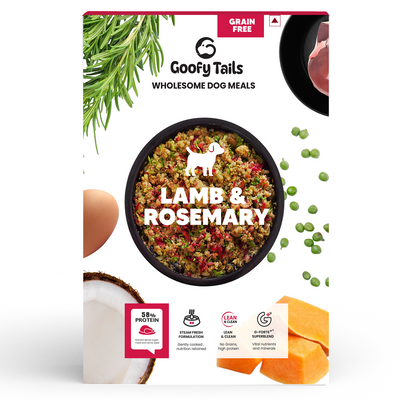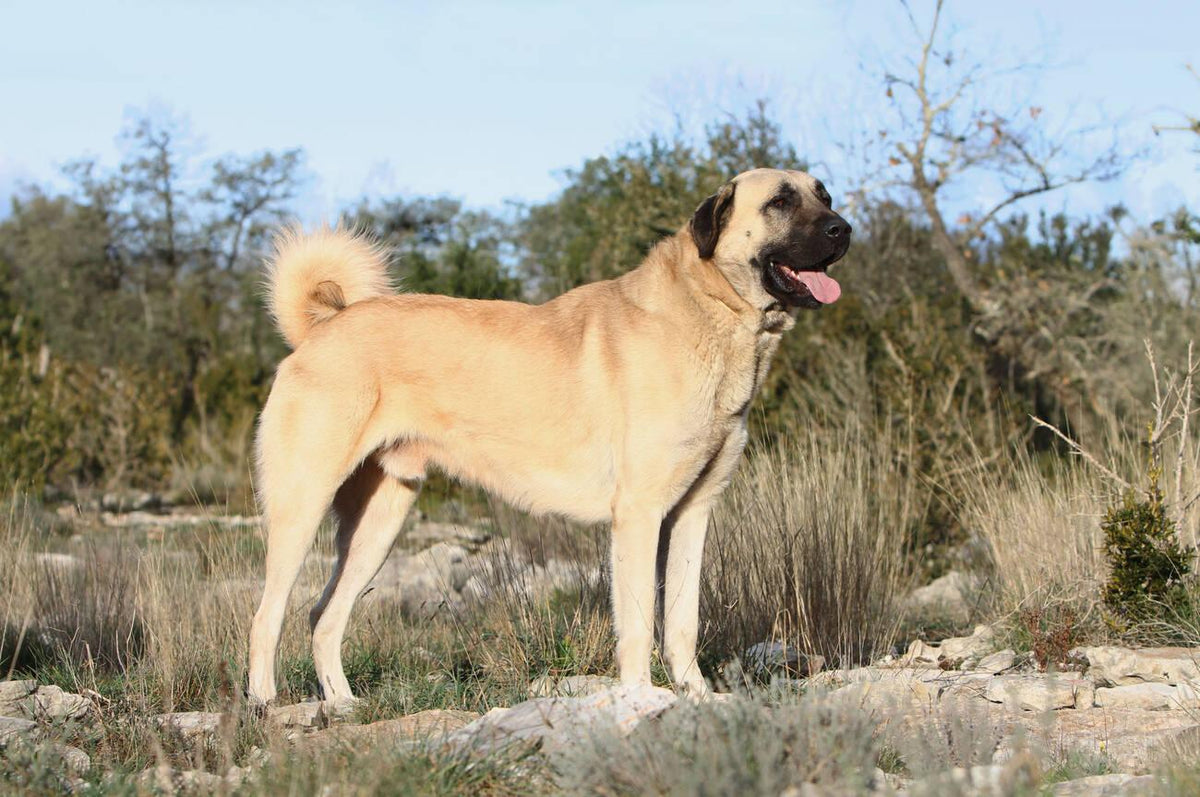
Breed History
Over centuries, the breed was selectively bred for strength, endurance, and protective instinct, developing into one of the strongest livestock guardian dogs in the world. Though internationally referred to as the Turkish Kangal, the breed is deeply tied to Kurdish pastoral culture and remains a symbol of rural life in the region.
Food for your Kurdish Kangal
-
Kurdish Kangals are giant livestock guardian dogs with very high energy and muscular build. Lean meats such as lamb, goat, or chicken provide the essential protein they need to maintain muscle mass, endurance, and overall strength.
-
Because Kangals are a giant breed prone to joint stress and hip issues, including foods or supplements rich in glucosamine, chondroitin, and omega fatty acids is vital. These nutrients help protect cartilage, reduce inflammation, and promote joint health throughout their life.
-
Adding nutrient-rich bone broths from lamb or chicken helps with hydration while providing collagen, minerals, and amino acids. This supports digestive health, immunity, and joint lubrication, which are especially important for such a large working dog.
-
When it comes to rewards, always choose natural, minimally processed treats such as freeze-dried meat or grain-free options. These treats help encourage positive reinforcement during training.
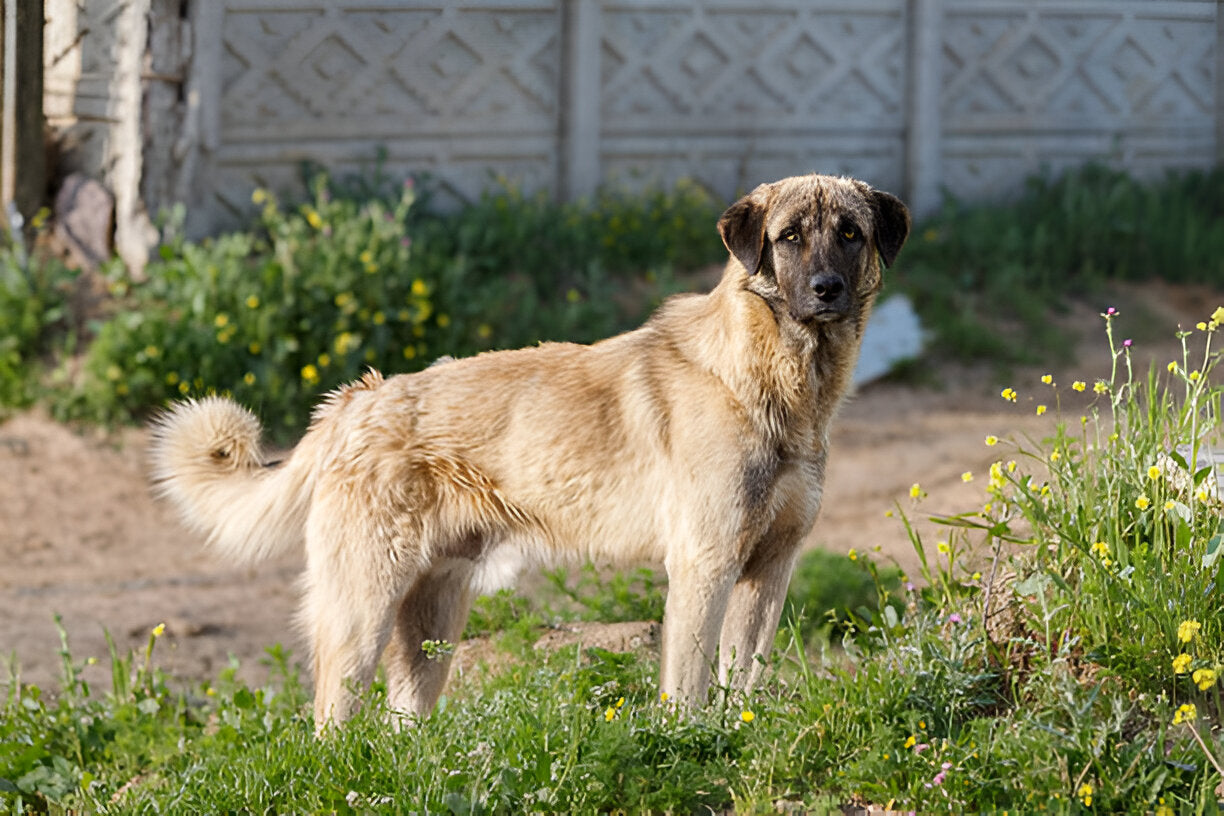
Training your Kurdish Kangal
-
The Kurdish Kangal is an independent and powerful guardian breed. While highly intelligent, it is also naturally strong-willed and protective, so consistent, firm, and patient training is essential to manage its instincts effectively.
-
Kangals respond best to clear structure and consistent routines. Using steady commands, calm tone, and repetition helps them understand boundaries and expectations, preventing confusion or stubborn behavior.
-
Positive reinforcement is key, but given their size and strength, training should focus on respect and trust rather than force.
-
Early socialization is crucial. Exposing a Kangal to different people, animals, and environments in a controlled way helps prevent over-guarding, ensuring they remain manageable guardians.
-
To stay mentally engaged, Kangals benefit from purpose-driven tasks like obedience drills, scent work, or guarding simulations.
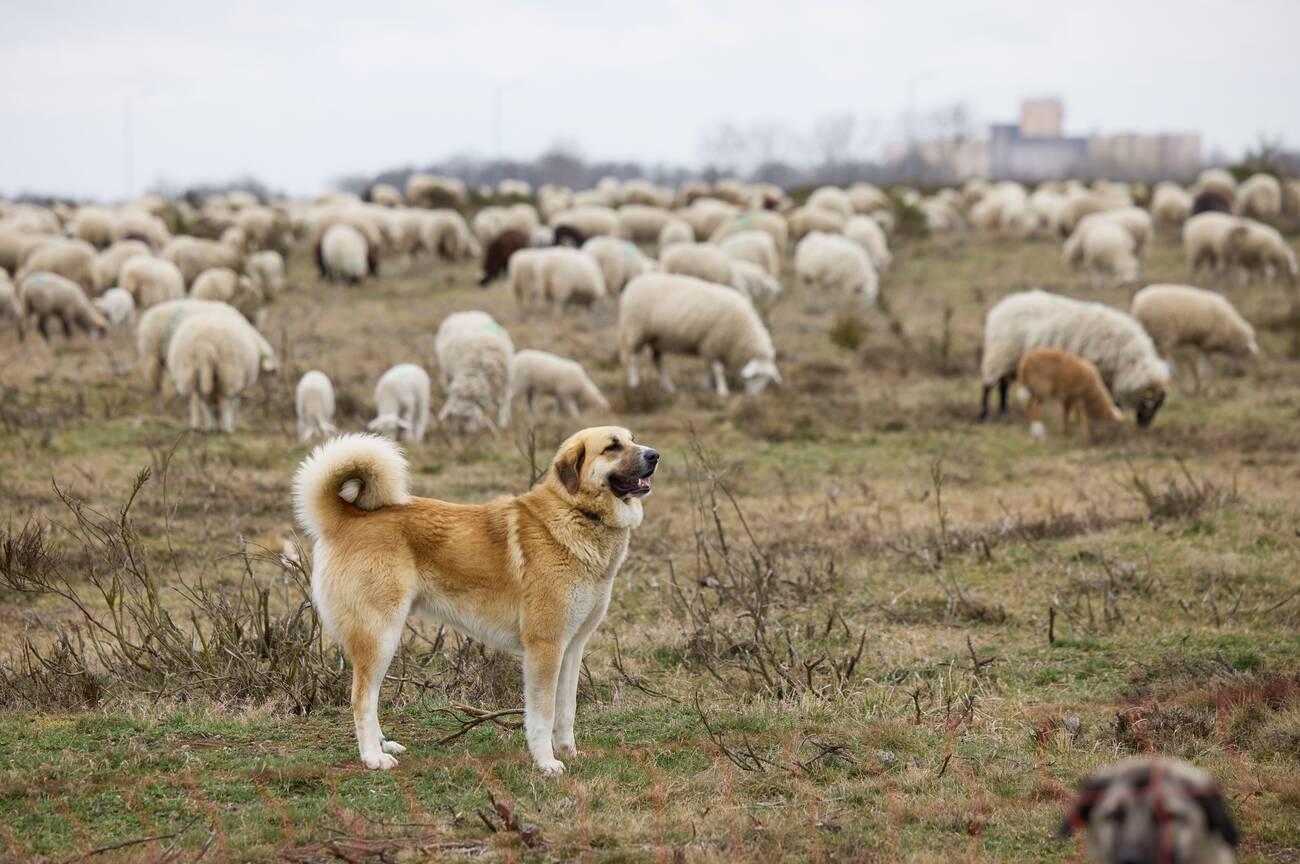
Recommended Treats
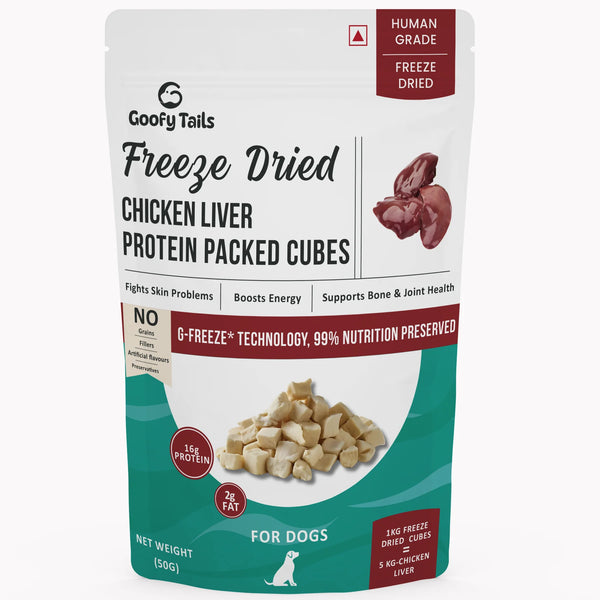
Freeze-Dried Chicken Liver
Packed with real, raw nutrition, these dog treats offer the convenience of freeze-dried goodness. These treats are gluten-free and grain-free, catering to dogs with dietary sensitivities or specific needs. Designed to promote digestion and overall well-being, they are perfect for dogs with sensitive stomachs.
Exercising your Kurdish Kangal
-
Kurdish Kangals are giant working guardians with very high stamina and require at least 1.5–2 hours of daily exercise. Regular activity keeps their powerful bodies conditioned, their minds steady, and prevents frustration that can develop.
-
They do best with long walks, running in open spaces, hiking, and purposeful tasks like guarding or patrolling. Varying activities and environments keeps them engaged and mirrors the work they were originally bred to perform.
-
Like other intelligent working dogs, Kangals need mental enrichment alongside physical workouts. Obedience training, scent work, and structured challenges help channel their independent instincts into positive, manageable behaviors.
-
Without proper outlets, a Kangal may become overly protective, restless, or destructive, which can lead to difficult behaviors in the household or with strangers.
-
Because of their large size and joint stress, it’s important to include low-impact activities such as controlled leash walks, swimming, or steady hikes.
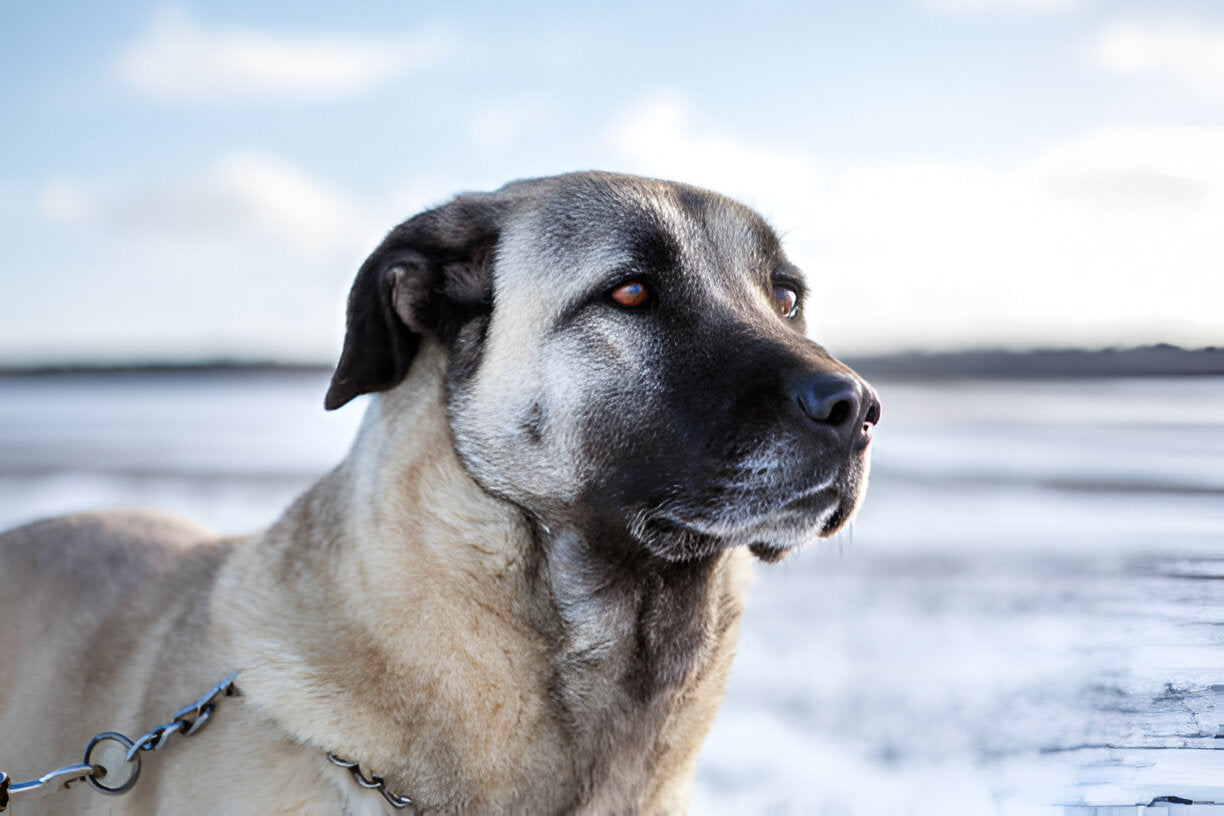
Recommended Supplement
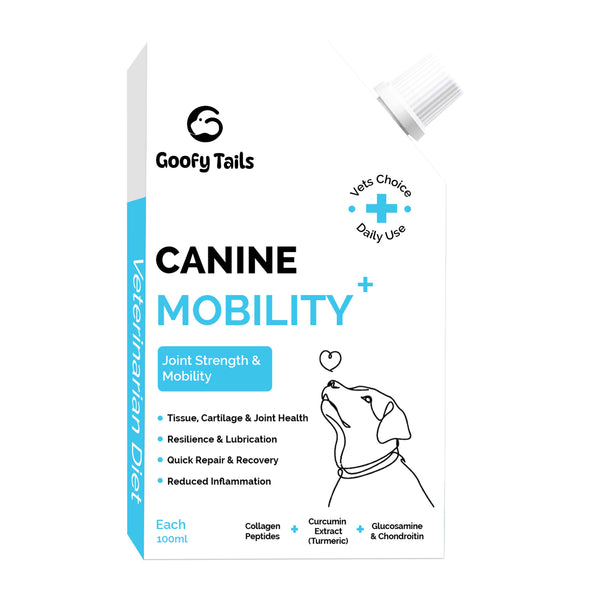
Canine Mobility+
A fortified broth specially formulated for dogs, enriched with collagen, glucosamine, curcuminoid, and chondroitin to enhance flexibility, ease stiffness, and promote long-term mobility. Highly palatable and ideal for senior dogs, breeds prone to joint issues, dogs recovering from fractures or injuries, and athletic dogs under joint stress.
Things to consider before getting a Kurdish Kangal
-
Kurdish Kangals are independent working guardians that demand serious time and commitment. They need long daily walks, purposeful activity, and consistent training to channel their natural guarding instincts, making them best suited for experienced owners.
-
As one of the largest dog breeds in the world, Kangals require ample open space. They thrive in homes with large, secure yards or rural properties where they can move freely.
-
Though intelligent, Kangals are strong-willed and naturally protective. Early socialization and patient, firm training are essential to prevent over-guarding or aggression.
-
Like many giant breeds, Kangals can be prone to hip dysplasia and bloat. Owners should prioritize high-quality nutrition, joint support, and regular veterinary care.
-
With their short coat, grooming needs are minimal, but they still shed lightly year-round. A weekly brush and occasional bath help maintain coat shine and reduce loose hair around the home.
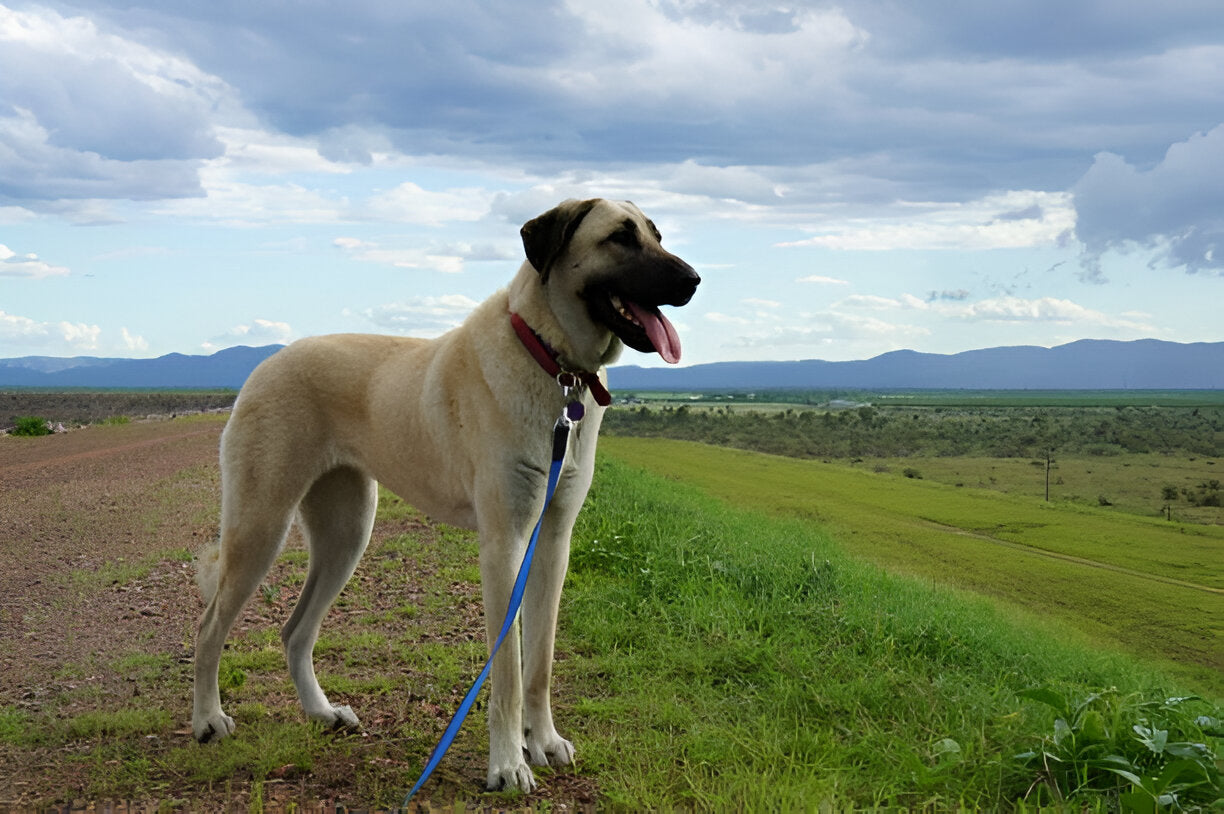
Frequently Asked Questions
Not usually. They’re working dogs with hearty appetites, but they do best with nutrient-dense meals that match their massive size and low metabolism when not active.
Kangals thrive on lean red meats (like lamb or buffalo), healthy fats, and joint-supportive nutrients like glucosamine. Their diet should be balanced but not overloaded with carbs.
That’s typical! They’re known for their low indoor energy and strong territorial instincts outside. They’re gentle giants indoors but vigilant guardians in the field.
Nope. These dogs need open space, yards, or farmland. Confining a Kangal to an apartment is unfair and can lead to stress and behavioral issues.
They’re smart but very independent. They respect leadership but won’t blindly obey. Training needs patience, consistency, and early socialization.
Yes, but not in the same way as high-energy breeds. Give them purpose (like guarding, obedience tasks, or problem-solving) rather than flashy tricks.
They’re protective, not aggressive. With proper training, they’re loyal, calm, and affectionate. But they may not tolerate strangers on their turf.
Yes, especially if raised with them. Kangals are gentle and protective around children and livestock, but early introductions help them bond.
They’re a hardy breed, but can face hip dysplasia, entropion (eyelid issues), and bloat. A joint-supportive, slow-feeding diet and regular checkups are key.
To protect their necks from wolf attacks! These collars, called "çengel", are traditional armor for Kangals guarding flocks in predator-prone areas. 🐺🦴













